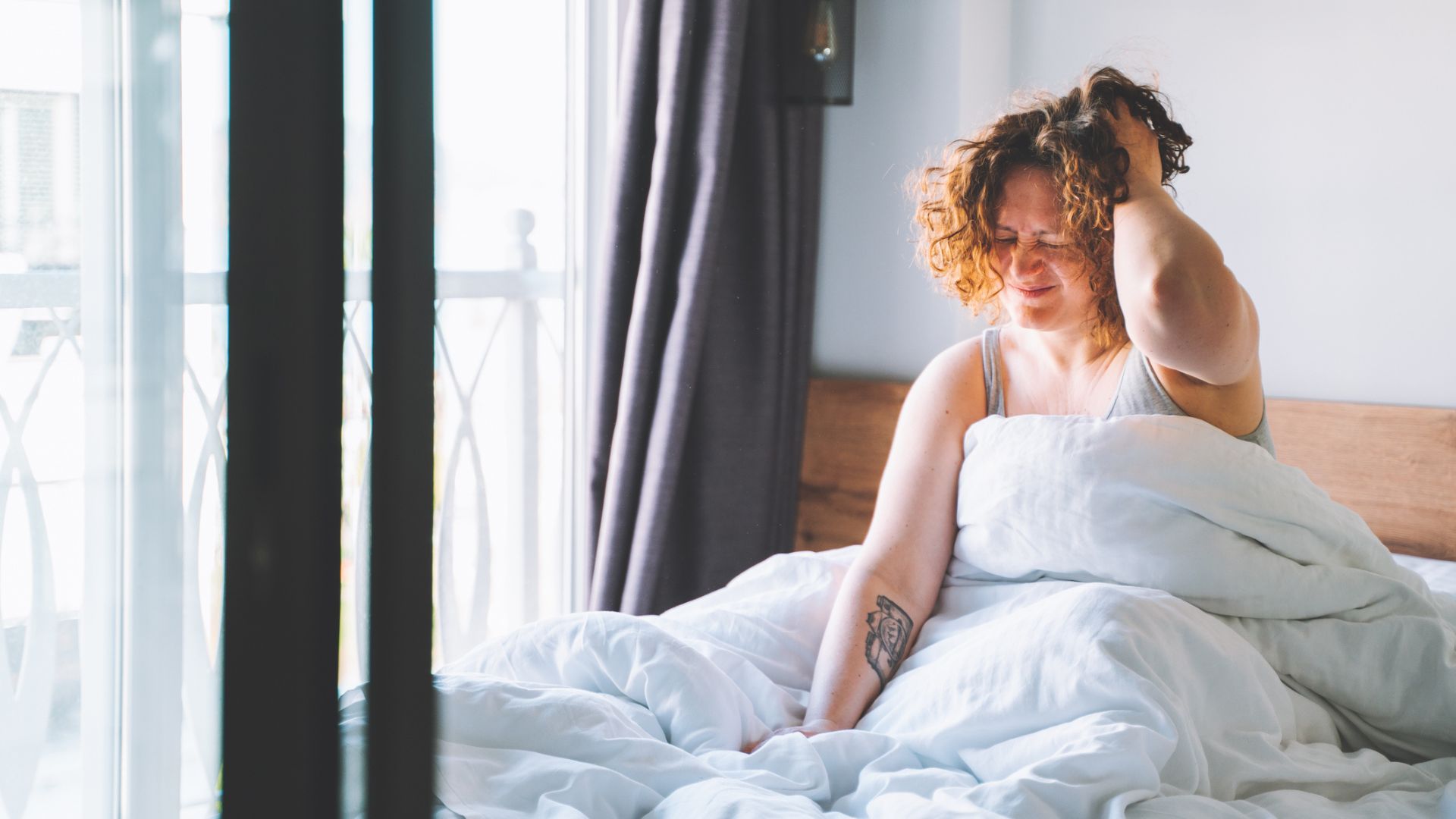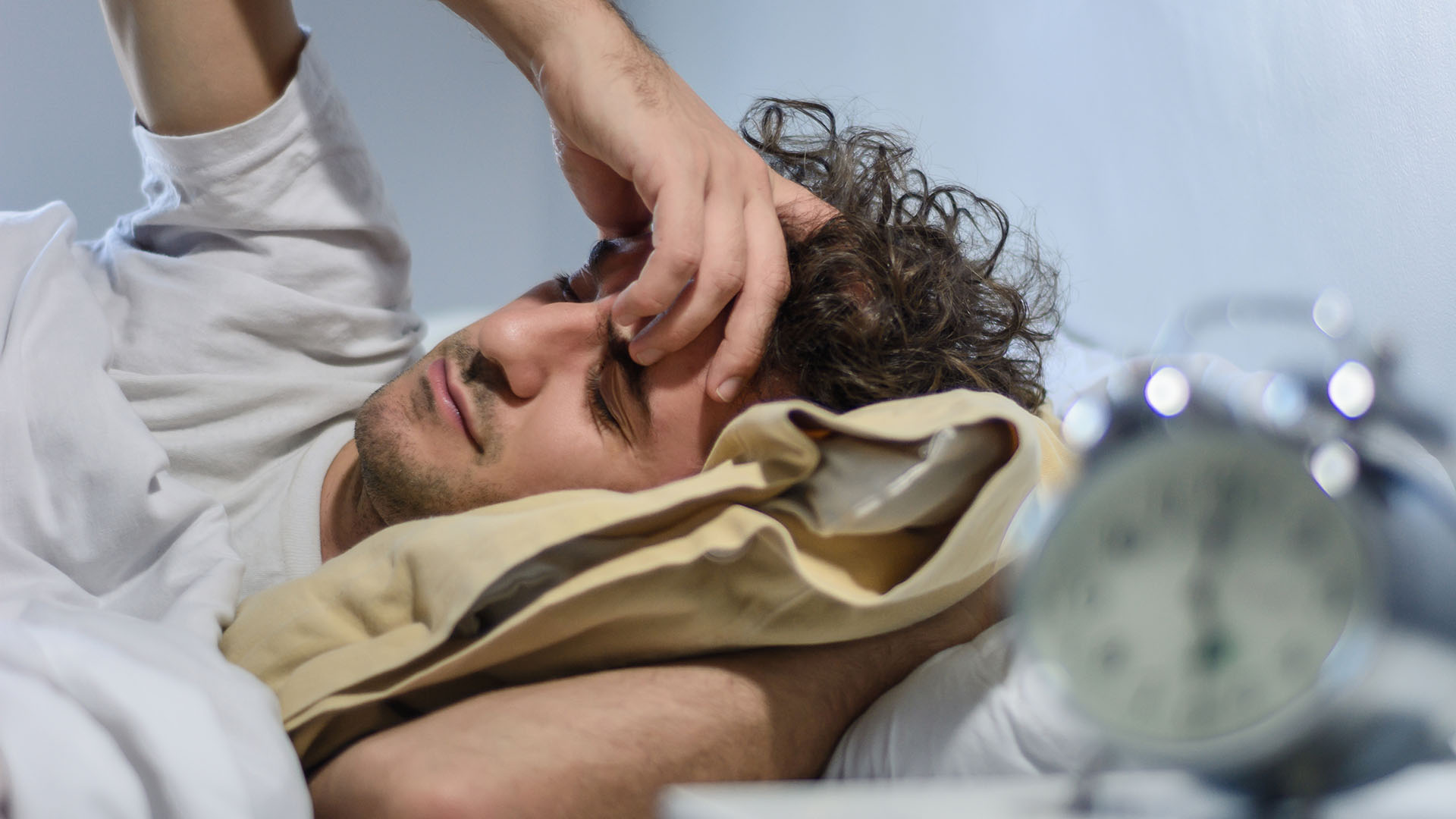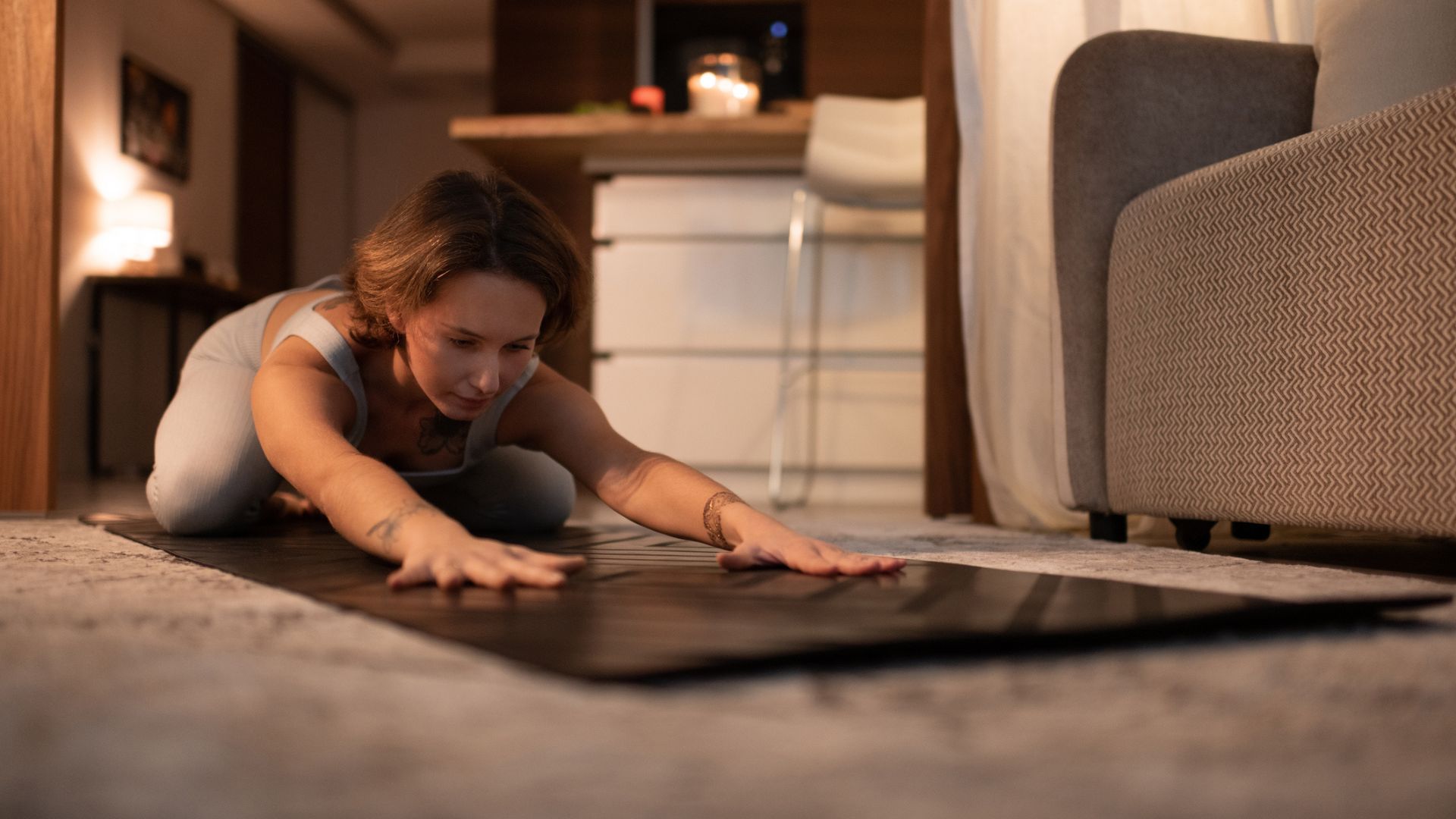What is sleep inertia? We asked an expert how to stop feeling groggy in the morning
We asked a sleep expert how to stop sleep inertia

There’s nothing worse than waking up to a blaring alarm, confused and bleary-eyed. But when this groggy feeling continues into the day, it can disrupt our routines and our ability to function. This is called sleep inertia, and it’s the state between being awake and being asleep.
But why does sleep inertia happen? While everyone is likely to experience sleep inertia, some may feel it worse than others. There can be plenty of different causes, from underlying sleep disorders and health conditions to lifestyle and habits.
To fully understand sleep inertia, we’ve asked Dr. William Lu, Health Medical Director & Sleep Medicine Physician at Dreem, to find out what causes sleep inertia, how to get rid of it and how to prevent it.
What is sleep inertia?
Dr Lu describes sleep inertia as “the transitional state between sleep and awake.” It usually occurs when you’ve woken up from sleeping for over 30 minutes and is characterized by decreased cognitive ability.
“Symptoms can include grogginess and disorientation that occurs after waking up from sleep,” says Dr Lu. Most commonly, people will recognize sleep inertia after a long nap, when you wake up confused and even more sleepy than before you fell asleep.
What causes sleep inertia?

Dr. Lu says that “there is likely going to be some degree of sleep inertia whenever you wake up from sleep.” However, he notes that “people can experience more significant sleep inertia if they wake up abruptly out of deeper stages of sleep, did not get enough sleep, or have sleep conditions that affect the quality of their sleep.”
“Sleep deprivation, irregular sleep schedule, medications, and certain sleep related conditions can all cause worse sleep inertia,” he adds.
So, what is actually happening in the brain during this foggy period? The truth is that no one has a clear answer yet.
“Your brain is figuratively being pulled to go back to sleep versus waking up. There are different hypotheses of why we have sleep inertia such as the brain still producing sleep-related brainwaves or not sufficiently clearing adenosine, which is a neurotransmitter that makes us feel sleepy,” says Dr. Lu.
How to prevent sleep inertia
Because everyone experiences sleep inertia, you can’t prevent it completely. However, if you want to reduce the symptoms, Dr. Lu advises that “the best thing to do is make sure that you get sufficient amounts of sleep. Most people need 7-8 hours of sleep per night and if you are getting less than this and having a hard time waking up, this is a sign that you may not be getting enough sleep.” Here are some ways you can ensure you get enough sleep.
Keep a consistent sleep schedule
A consistent sleep and wake schedule can be very effective in tackling sleep inertia. Dr. Lu says, “I recommend going to bed and waking up at a consistent time every day. The body loves a sleep routine and varying too much from it can confuse it.”
By going to sleep and waking up at the same time every day, you can regulate your internal body clock. This will make it easier to wake up and easier to fall asleep, as your energy levels become regulated.
You’ll also be less likely to experience sleep deprivation if you follow a clear sleep schedule, because you’re more likely to get 7-8 hours of sleep.
Consider lifestyle changes

Certain lifestyle changes can improve the quality of your sleep and therefore reduce sleep inertia. This includes avoiding alcohol and quitting smoking.
Even just one alcoholic drink can reduce the quality of sleep you get, leading to lighter, more interrupted rest. Similarly, smoking is associated with increased insomnia and shorter sleep durations, which can result in worse sleep inertia.
If you regularly report poor sleep or feeling lethargic but don't know why, you may have an underlying sleep disorder.
“If you have potential sleep conditions such as sleep apnea, insomnia, or other conditions, talk to a sleep medicine provider. These conditions can interrupt your sleep, cause you to not get enough sleep, and potentially worsen sleep inertia.”
Pay attention to your sleep hygiene
Sleep hygiene refers to the practices and habits that can impact the quality of sleep you get. Some examples of good sleep hygiene includes eating three balanced meals a day and avoiding sugary snacks in the evening, only using your bedroom for sleeping and having a clear nighttime routine.
However, your lifestyle and habits might be contributing to poor sleep hygiene. For example, using your phone before you go to sleep, spending lots of time in your bedroom before you fall asleep and drinking alcohol or eating heavy meals before you go to bed.
Alongside this, ensure your sleep environment meets your needs. Have you got the best mattress for your sleep needs? Do you use the best pillow to support your neck and sleep position?
Allow time to gradually wake up
Gradually waking up allows your body time to fully adjust to a wakeful state, rather than trying to go about your daily routine while still half asleep. Sometimes, this means setting your alarm earlier than you need. However, we’d only recommend this if it means you can still get at least 7 hours of sleep.
A great way to wake up gradually is with a sunrise alarm clock. The best sunrise alarm clocks offer customizable sunrises, meaning they can gradually lighten to a brightness of your choice over 30 minutes, and often can be accompanied by sound. It’s a great way for your body to slowly adjust to a more wakeful state, rather than a blaring alarm by the side of your bed.

How to get rid of sleep inertia
If you feel like your sleep inertia is lingering a little longer than you’d like, the following tips can help you feel more awake and refreshed.
Wash your face with cold water
While the science behind splashing your face with cold water may be limited, it’s certainly anecdotally proven to help you feel refreshed and more awake. The sensation of cold water hitting your face can be enough for us to ‘reset’ ready for the day.
There are also studies that show cold water can increase blood flow in that area and therefore improve circulation, which may be responsible for the boost in energy you feel after splashing your face with colder water.
If you’re feeling brave, try a cold shower instead. Cold showers have a huge amount of health benefits, one being that it sends lots of electrical impulses to the brain from your nerve endings, which’ll have the effect of making you feel more awake and alert.
Get some natural daylight

Natural daylight is essential in regulating your circadian rhythm, which is essentially your internal body clock. This is responsible for when you feel naturally energized or naturally sleepy.
Studies have shown that getting daylight in the morning is essential for regulating our energy levels throughout the day, as well as helping us sleep better at night. It does this by impacting our hormone levels. When it is dark, our bodies release melatonin which helps us sleep.
However, when it is light, our levels of melatonin should decrease. So, if you ensure you jump out of bed and outside for your morning coffee, it’ll not only help to wake you up, but it’ll keep you awake all day until it’s time for bed.
Do some exercise
Exercise elevates our core body temperature, which is a key signal to our bodies that it’s time to wake up.
Our body temperature drops during the night, which helps us fall asleep and stay asleep, and it naturally rises as we wake up. However, if you’re waking up long before your body wants to, you may not have had time to ‘warm up’ yet.
While a hot shower is most people’s go-to, exercise can work just as well. By raising the heart rate as well as your core body temperature, you’ll feel more alert. Exercise can also help you sleep better at night, meaning you’re more likely to get your 7-8 hours.

Take a 30-minute nap
If you’re struggling with sleep inertia, taking a short nap during the day can help you feel more refreshed and energized. Ensure the nap is under 30 minutes long, as anything more than this can actually cause or worsen sleep inertia.
If you struggle to fall asleep quickly, try a calming breathing exercise or a technique that many claim help you fall asleep in two minutes: cognitive shuffling.

Lauren is an experienced writer and editor in the health and lifestyle industry and has led many campaigns and projects that deliver news, advice, and research on all things sleep. As the Sleep Features Editor for Tom’s Guide, Lauren writes, commissions and edits sleep and mattress content, from in-depth how-tos in sleep and mattress health to interviews with doctors and neuroscientists on the latest news in sleep. Lauren regularly tests new sleep tech and accessories to evaluate their effectiveness for getting good quality sleep and easing specific sleep struggles like nighttime anxiety. Alongside this, Lauren reports on the best mattress brands out there, like Helix, Saatva, and DreamCloud, helping readers find the right mattress for them and the best deals on them.
